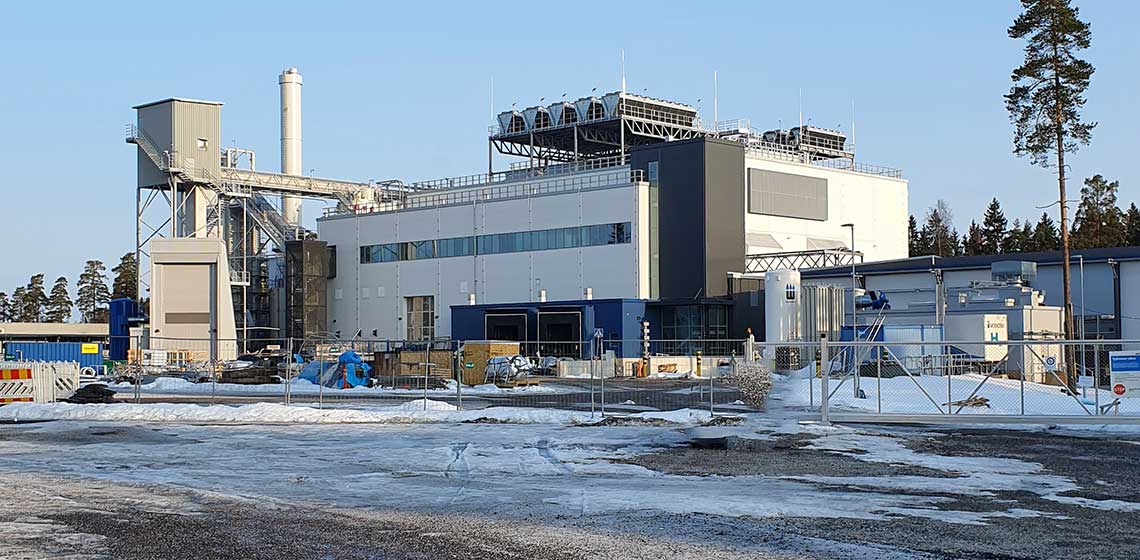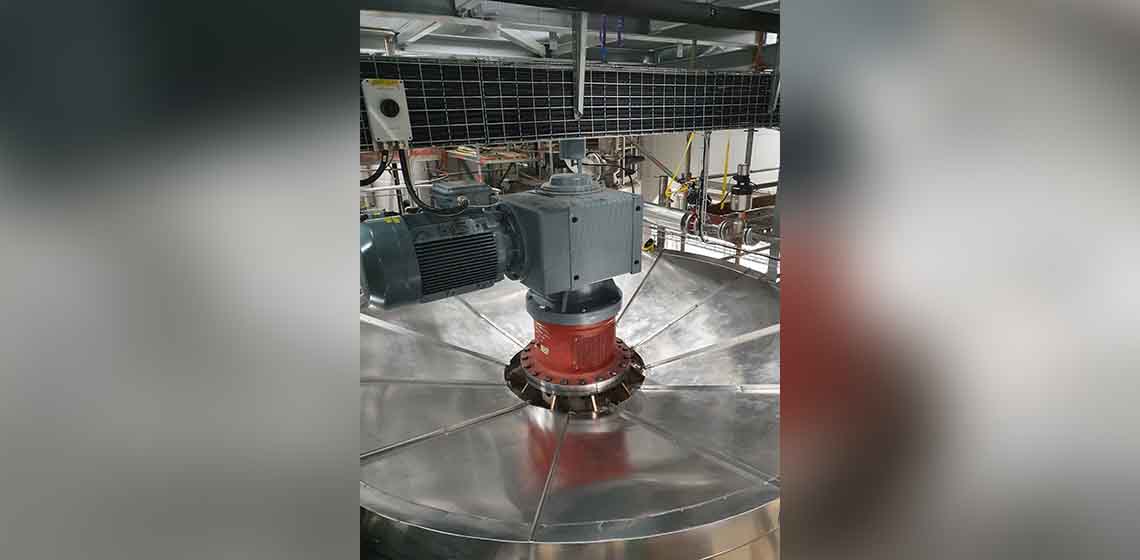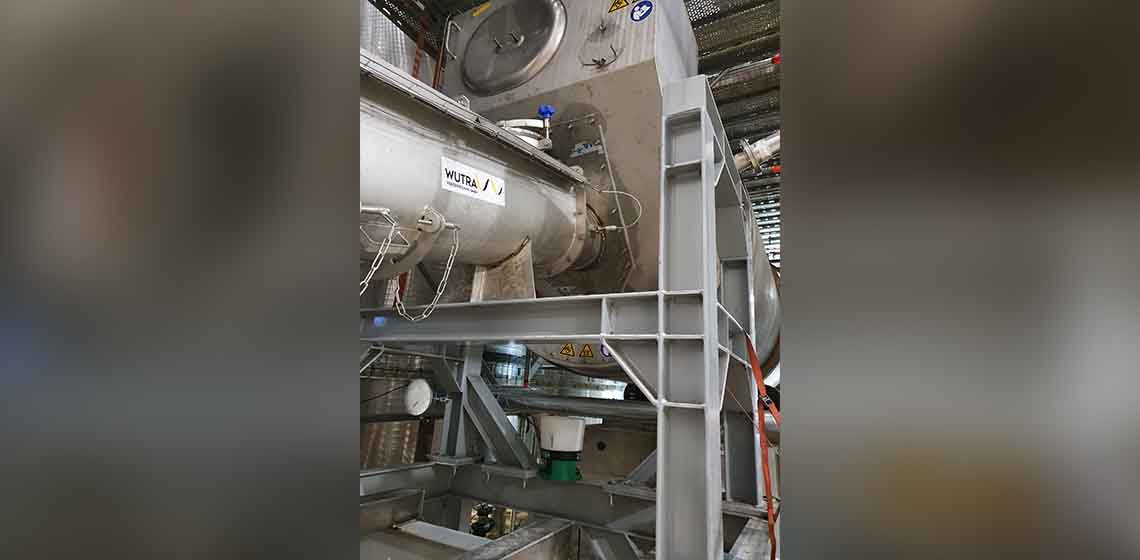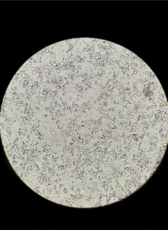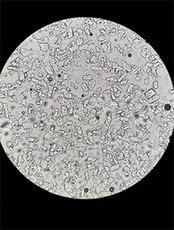Last year we reported here on an order from the Finnish corporation Fazer for the supply, assembly and commissioning of crystallisation equipment for xylose and xylitol, and for the supply of a drying plant. This innovative project has progressed well: in collaboration with BMA, Fazer have successfully commissioned their crystallisation plant.
Successful commissioning of crystallisation plant
One plant configuration for two crystalline products
Crystals: research and development in the BMA laboratories
An earlier stage had seen extensive testing in the BMA laboratories – evaporative and cooling crystallisation tests, and drying tests on the two crystalline products. Configuration of the machines and apparatus for the industrial process was based on the results of these tests.
Xylose and xylitol have different chemical and physical properties because of their respective chemical structures. But the aim was nevertheless to find one plant configuration for the crystallisation of both products and respond to the specific composition of each aqueous solution by changing technological parameters in the crystallisation process.
Process for production: a highly flexible crystallisation plant
Since the crystallisation is performed in batches, the different solubilities of xylose and xylitol, the specific crystal growths, crystal shapes and crystal sizes, as well as the range of substance data and the specific yields can be taken into account in the combined evaporative and cooling crystallisation process. This flexibility of the crystallisation plant also means the xylose and xylitol crystallisation processes can be adapted if basic parameters change, and permits the testing of new process variants.
One challenge in plant design was positioning the equipment in the building, which has only limited space available. The solution was to use a non-standard custom installation arrangement for evaporative crystallisation. Consequently, condensate discharge from the apparatus also had to be rethought.
Because of the pandemic situation in 2020, the overall project was delayed, which ultimately affected assembly. In order to advance the project despite travel restrictions, Fazer carried out most of the work themselves.
Commissioning by experts from BMA
In early March 2021, Fazer indicated that the crystallisation plant was ready for commissioning. In order to provide on-site support while complying with the strict hygiene rules, the BMA experts for non-sugar sweeteners travelled to Lahti.
During commissioning, the crystallisation plant produced xylose, the starting product for xylitol. The challenge in this was to adapt the technological parameters that had been determined in the preliminary laboratory tests.
The BMA team therefore analysed and characterised the technical xylose solution in Fazer’s company laboratories at Lahti. They tested solubility and spontaneous nucleation under simplified conditions. With the results, it was possible to determine the starting conditions for evaporative crystallisation of the xylose solution and to define the parameters for seeding.
Crystal growth during the second crystallisation stage
Following a successful evaporative crystallisation stage, the complete batch of xylose crystal suspension is transferred to a vertically arranged cooling crystalliser. Controlled cooling is intended to generate further crystal growth during the second crystallisation stage, increasing the yield of the whole process.
Active mixing helps to distribute the crystal suspension more evenly in the crystalliser and supports heat transfer from the product to the coolant in the circuit. The heat generated in crystallisation can be discharged and the necessary supersaturation maintained during the whole process.
Sequential sampling was used throughout the entire process time to determine and assess the composition of the crystal suspension, and the morphology and size of the crystals over the course of cooling crystallisation. When the final temperature had been reached, it was found that the crystals that had developed were comparable to those produced during the preliminary tests in the BMA laboratories in terms of shape, morphology and size.
Crystals: drying and cooling in one plant
When the process aim of the second crystallisation stage is achieved, the crystal suspension can be discharged to a centrifugal station, where the xylose crystals are separated. They are dried later in the process in a BMA drying plant. Commissioning of the drying plant, which was completed at a different time for administrative reasons, went smoothly.
The early production stage following the successful commissioning of the BMA equipment will involve adapting technological parameters based on changes in the starting product. This requires a high level of process knowledge and engineering expertise, gained and expanded during operation of the plant. A camera system installed by Fazer plays an important role in this respect. It permits monitoring of the crystallisation process in the evaporative crystalliser, so the impact of several process parameters on crystal formation and growth can be studied live. Thanks to this system, the crystallisation and drying of the two products, xylose and xylitol, can be optimised more quickly.
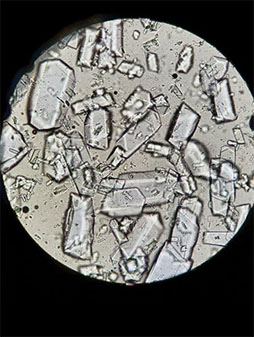
Next step: crystallisation and drying of xylitol
One of the next challenges will be the crystallisation and drying of xylitol, which is produced through xylose hydrogenation in a separate process. It goes without saying that BMA will be offering on-site support to Fazer with crystallisation and the drying of xylitol.


